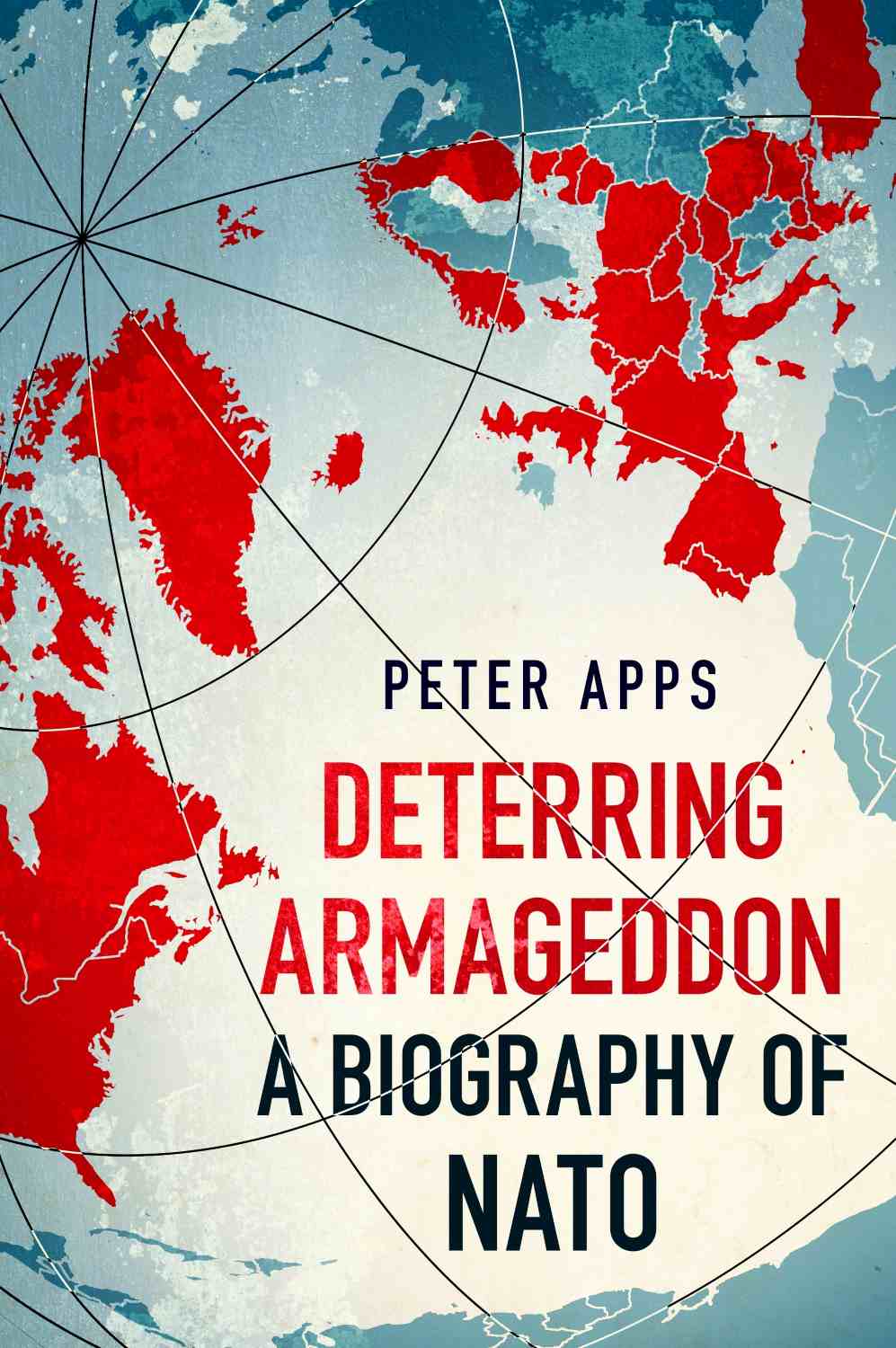Lord Robertson reviews 'Deterring Armageddon: A Biography of NATO'
Washington 1949: Foreign secretary Ernest Bevin signs the North Atlantic Pact | Image by: PA Images / Alamy Stock Photo
3 min read
Peter Apps has produced a well-researched, highly readable account of the military, strategic – and indeed personal – twists and turns of NATO’s 75-year history
This is a big book, but it has a big story to tell. That story, of the world’s most successful ever defence alliance, encompasses most of my own life – and it still matters to all of us as when it was born 75 years ago.
“In the mid-afternoon of the 31 December 1947, the US Director of European Affairs, Jack Hickerson strode into the State Department office of his deputy, Theodore Achilles, and announced that the two of them were about to change the world. ‘We’ve got to negotiate a military alliance with Western Europe in peacetime, and we’ve got to do it quickly.’”
It was the germ of a very bold idea. It meant collective defence of the Western world which included, by treaty commitment, the United States, and it was to grow into the mighty 32-nation NATO which will celebrate its 75th anniversary in Washington DC in July.
This book is a well-researched, highly readable account of the military, strategic – and indeed personal – twists and turns in NATO’s history. From its ambitious but controversial birth in the aftermath of the Second World War to its role in facing the Russian aggression against Ukraine today, the story is fascinating and enthralling and, given the state of the world before it existed, inspiring too.
NATO’s history however has not been easy
Peter Apps is an experienced journalist and he knows how personalities from Joseph Stalin, Charles de Gaulle and Ernest Bevin, to Slobodan Milošević and Donald Trump have moulded the evolution of the alliance. He weaves in the multiple personalities into how that improbable idea of Jack Hickerson became the formidable organisation which to this very day keeps a billion people in allied countries safe in their beds.
NATO’s history, however, has not been easy. And yet the Cold War confrontation – probably the most dangerous period in our lives, was still successfully won with the USSR dissolved and the Warsaw Pact closed down.
 The horrors of the Balkans, described here in all their misery, were to be curtailed by the alliance firing its first ever shot of anger in defence of Bosnia’s muslims. Then Kosovo where a pithy “Serbs out, NATO in, refugees home” produced a signal success for the alliance. And in what is now North Macedonia an almost certain civil war was prevented by the European Union and NATO jointly building a lasting peace plan. Apps is one of the few historians to pay credit to that highly successful operation, which was overshadowed by 9/11.
The horrors of the Balkans, described here in all their misery, were to be curtailed by the alliance firing its first ever shot of anger in defence of Bosnia’s muslims. Then Kosovo where a pithy “Serbs out, NATO in, refugees home” produced a signal success for the alliance. And in what is now North Macedonia an almost certain civil war was prevented by the European Union and NATO jointly building a lasting peace plan. Apps is one of the few historians to pay credit to that highly successful operation, which was overshadowed by 9/11.
The brutal events in New York and Washington were to lead to the first ever invocation of Article 5 – the “an attack on one is an attack on all” defence guarantee. That decision and the impending accession to the organisation of seven new countries in 2002 was to change NATO internally and externally forever.
Afghanistan was not to be a shining moment, and the Libyan intervention has still to play out.
In July a NATO reinvigorated by Vladimir Putin’s folly will have much to feel proud of. But with Trump in the wings, the presidential candidate’s shadow makes this “biography” all the more relevant and important.
Lord Robertson is a Labour peer and NATO secretary-general 1999-2003
Deterring Armageddon: A Biography of NATO
By Peter Apps
Published by Wildfire on 1 February
